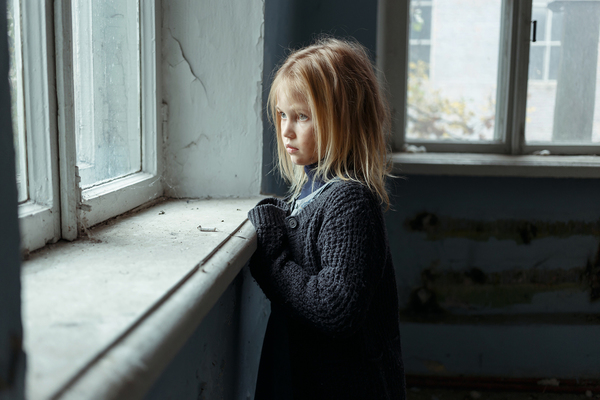You are viewing 1 of your 1 free articles
We must choose to change the conditions that create poverty
Several new reports paint a depressing picture of the UK’s housing crisis in December 2018. But they also make it clear what response is needed in 2019, writes Martin Hilditch
December arrived this week with its usual selection box of reminders about the impact of policy choices on people’s lives.
Shelter received copious amounts of national attention with its research suggesting that more than 130,000 children will be homeless in Britain this Christmas.
The Joseph Rowntree Foundation’s (JRF) analysis of poverty in the UK in 2018 flagged up research that showed more than 1.5 million people were living in destitution in 2017 – including 365,000 children.
In its Home for Good report, St Mungo’s highlighted research from the National Housing Federation that showed 30% of housing association respondents citing a heightened risk of rent arrears as one of the barriers to housing homeless people.
More than 40% cited Universal Credit and the benefit cap as other obstacles.
And the Mayday Trust launched research at this week’s Chartered Institute of Housing (CIH) homelessness conference which suggested people living in supported housing are being discouraged from finding work because they won’t be able to afford the rent.
Some of the 80-plus respondents suggested they felt they had no choice but to make their personal situations worse in order to be prioritised for housing.
There is a danger, however, that beyond driving donations in some cases, such a snowstorm of headline figures could disguise the unifying theme of all the reports and research.
Broadly, that is that the figures are the result of policy decisions – both governmental and organisational – and that they can be reversed if different choices are made.
"For government, the role the welfare system plays in creating and entrenching poverty is probably top of the list"
The goal can’t be to alleviate poverty – important though this is. It has to be to change the conditions that create it.
Casting our minds forward to 2019, the reports do have some pretty consistent pointers about what needs to be addressed.
For government, the role the welfare system plays in creating and entrenching poverty is probably top of the list – and linked to this there is the need to think more closely about how much genuinely affordable, social rented housing it funds.
The JRF report sets this out most clearly, stating: “Private rents remain very high, social rents have risen considerably and housing benefit meets less of these costs (as eligible rates have fallen below actual rents) for very large numbers of families in poverty.”
For social housing providers, the second point about rent levels is clearly vital. So too is the relationship between housing associations and councils.
The National Housing Federation research into homelessness cited by St Mungo’s also saw 22% of providers raising a “lack of partnership with local authorities” as a barrier to housing homeless people.
The CIH is currently carrying out research into the allocations system and this promises to make an important contribution to this debate in 2019.
Inside Housing will also be investigating this issue more closely in the new year.
So, given this is my last leader of 2018, Happy Christmas to all our readers – and let’s do all we can in 2019 to make sure we’re not fretting over an even worse set of statistics and stories this time next year.
Martin Hilditch, managing editor, Inside Housing











